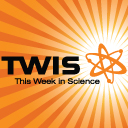Podcast: Play in new window | Download (Duration: 1:59:49 — 110.2MB)
Magnetic Movement, Crystal Stars, Repeating FRB FTW!, Human Desire, Ebola Cure, Primate Disease, Whale DJs, Immune Systems, Early Autism Changes, Anger Stimulation, Cricket Culprits, Freaking Eye Beams, And Much More…
Want to listen to a particular story from the show? You can do that here. Just look for the time-code link in the description.
DISCLAIMER, DISCLAIMER, DISCLAIMER!!!
Robots are everywhere!
And robots are great, because robots do a lot of work faster, better and tirelessly.
Yes, robots work!
Until they don’t.
And when they don’t work, that’s where humans can help!
And humans helping robots get back on task…
While having nothing to do with the following program
Is exactly how I began and ended my day at work today.
Which is why this disclaimer is all about robots, and not
This week in Science,
Coming Up Next…
Magnetic Movement
Thanks to the US government shutdown, not only are thousands of people working without pay or furloughed, but the is FDA significantly reducing agricultural inspections, and it looks like global navigation will continue to be affected by a misaligned magnetic field.
Crystal Stars
There are diamond stars all around us.
Repeating FRB FTW!
The second repeating fast radio burst discovery in history was reported this week in Nature.
Human sexual desire…
is linked to relationship forming. Who knew?
Ebola cure
Has one been found?
You might take more than a photo home after snapping a selfie with a monkey…
Humans and monkeys in Cameroon interact in a lot of ways, but new research tells us that any contact, even having monkey on the menu, might get humans very, very sick.
Whale songs go in and out of style, just like those CRAZY PANTS, KAREN!
Humpback whales trade, incorporate, and together abandon elements of their songs, alongside other humpback populations, despite limited contact. Must be really catchy!
Support us on Patreon!
This Week in What Has Science Done for me Lately?!?
“Hi folks,
I’ve been a fan of the show for years now. And like many of your listeners, I have much to thank medical science for. Perhaps I’ll get back to you later about that. For today, though, I have to thank science for entertainment. Science is mostly the slow accumulation of facts and refinement of ideas, but I’ve always been fascinated by the breakthroughs that have added to the storehouse of knowledge, or in some cases by scientific events that were just spectacular. I’ve seen the arrival of Black Holes, quasars, the Cosmic Background Radiation, smallpox eradication, quarks, lasers, high-temperature superconductors, computing from vacuum tubes to qubits, space exploration from Sputnik to Major Tom in a Tesla, the Higgs boson, plate tectonics, graphene, Lucy, Denisovans, dark matter and dark energy, CRISPR and the list goes on. The Anthropocene and mass extinction, I could do without. But I find science and the power it has to lift the veil of ignorance to be immense fun and a great source of hope at the same time.
Lately? Well, lately, I have been given new entertainment by a subject that some folks thought was old hat when I was a kid, namely relativity. And it largely started with a TWIS episode. Let me explain.
LIGO and its companion detectors have opened up a whole new field of gravitational astronomy for us. Their detection of gravity waves has been covered extensively on TWIS, and as I am drafting this text I see four more events announced. As a byproduct, just over a year ago two papers came out almost on top of each other, and generated a classic moment of unintended comedy. On TWIS episode 643, Justin Jackson, with great enthusiasm, explained how the authors of the first paper, using LIGO measurements from black hole collisions, had been able to place upper and lower bounds on the speed of gravity, at roughly the speed of light plus or minus 45%. So far so good. He then immediately went on to describe the findings of the second paper, issued only 2 days later, which compared the newest matching gravity and gamma ray detector results for a neutron star collision. These findings proved that the speeds of gravity and light are the same to within a minuscule fraction above or below, expressed in scientific notation as numbers times ten to the minus 15th or 16th power. Unfortunately, in reading out the numbers, Justin kept leaving out the minus sign in the exponents, thereby effectively changing the accuracy to plus or minus about a billion light years per second, rather than fractions of a micron. He tried valiantly to explain why what he was reading out was an improvement. The look on Dr. Kiki’s face as she sought to contain the resulting confusion was priceless.
The whole occurrence inspired me to order a bunch of books from the library about Einstein and his work on relativity, which gave me many hours of educational entertainment, and deepened my respect for a great man’s genius. In appreciation, I offer the following limerick to the TWIS crew:
Although Justin could not say it quite,
The detectors show Einstein was right:
Their dataset proves
That gravity moves
At precisely the same speed as light.
–Rod Hagglund
Ottawa, Ontario, Canada”
Your genes are part of your immune system
Your microbiome is part of your immune system
Early Autism Changes
Using stem cells, scientists pinpointed the stage where neuronal development in autistic brains might start to differ from normal.
Anger Stimulation
Researcher used tDCS to modulate an area of the brain involved in impulse control to determine if anger-responses could be reduced… and they were.
Cricket Culprits
While crickets certainly weren’t the cause of concussion-like symptoms reported in relation to a strange illness affecting people on the US Cuban military base, their songs were part of the story.
Freaking Eye Beams
We all have imaginary beams coming out of our eyes.
Using plastic tarps and garbage to make our agricultural system more sustainable??
What is considered waste in agricultural industry, paired with some good, old-fashioned tarps, could make chemical pesticides unnecessary!
If You love TWIS, please consider making a donation below.


